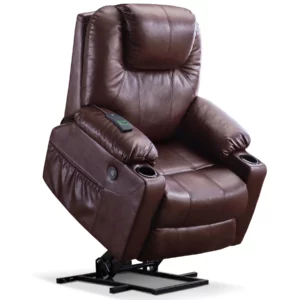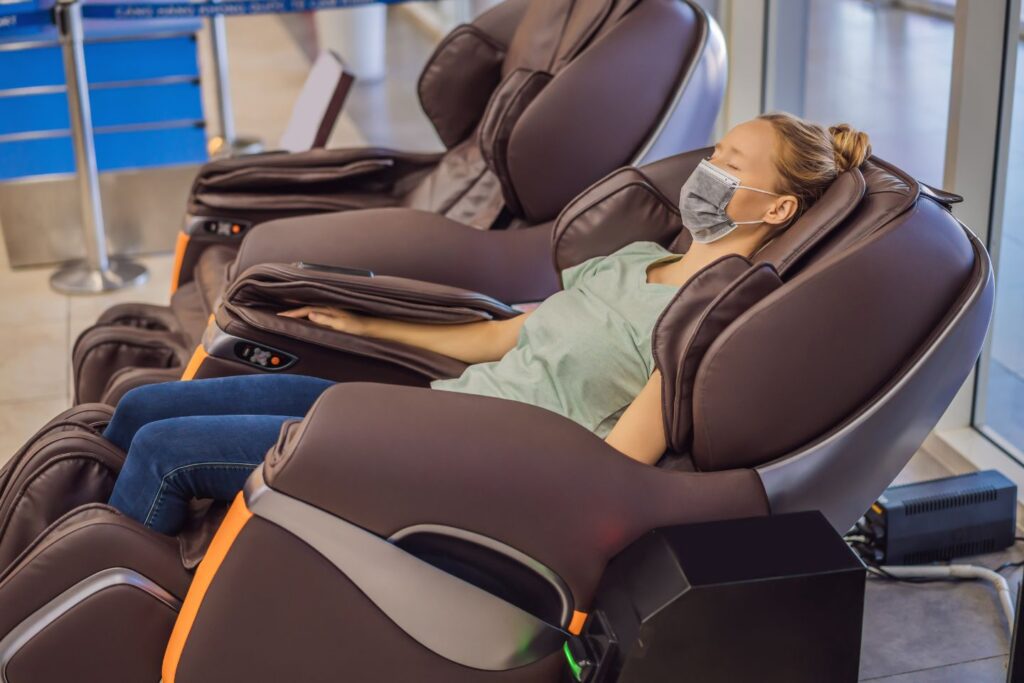Over 50,000 shoulder surgeries are performed every year in the USA. This statistic is not surprising, given the complexity of the shoulder. This hardworking joint – the most mobile in the body – consists of three primary bones, muscles, and tendons. As a result, numerous shoulder injuries can happen.
Main Types of Shoulder Injury
With the shoulder capable of a wide range of motion, it must be highly flexible. At the same time, this mobility makes the joint unstable and vulnerable to injury. This susceptibility leads to various concerns, including:
Instability: This injury occurs when ligaments and muscles are stretched beyond their limits. Instability happens most often in athletes and youngsters when the shoulder joint is hyper-mobile and easily overworked.
Symptoms include weakness or looseness in the arm, with sudden or gradual onset. Treatment for shoulder instability includes rest and physical therapy or surgery to tighten the ligaments if necessary.
Sprains: A sprain, or acromioclavicular separation, occurs when the clavicle (collarbone)-acromion (top of the shoulder blade) ligaments tear. This type of damage often happens during a fall, causing severe pain, decreased shoulder mobility, and a misshapen shoulder.
Pain and swelling can be eased, and healing is encouraged by applying ice and wearing a sling. However, if the sprain is profound, physical therapy can help, as can surgery.
Dislocation: A dislocation occurs when the shoulder bone ligaments tear, and the joint comes “loose.” A violent twisting action usually causes the injury, characterized by pain worsening with movement.
Treatment includes applying ice to help alleviate joint swelling, pain, and bleeding. Dislocations need urgent medical intervention involving traction to replace the joint. If the same injury recurs frequently, the torn ligaments will require surgery to repair.
Rotator cuff tears: These four muscles in the upper arm allow raising and rotation. If the tendons attaching the muscles to the bones tear, the joint is compromised, limiting arm movement up or away from the body.
These tendons tend to weaken and degenerate with age, leading to tears. Still, repetitive overhead arm movements or heavy lifting can cause injury in anyone’s tendons. The bone and tissue become misaligned, causing chafing, tenderness, and soreness, with a rupture disabling the arm.
The shoulder has a poor blood supply, making healing more challenging. However, rest, ice, compression, and elevation (RICE) are usually enough to help your rotator cuff heal. Physical therapy is always advised, and you may need anti-inflammatories.
Frozen shoulder: Extreme shoulder stiffness affects around 2% of Americans, mostly between ages 40 and 60, but can occur at any age. Causes are not clear but can happen after a period of shoulder immobility and with specific conditions such as heart and thyroid disease, Parkinson’s, and diabetes.
It can also happen after a separate injury heals with scar tissues. Physical therapy, steroids, and stretching can help.
Arthritis: Osteoarthritis is when cartilage wears out, causing discomfort, lack of mobility, stiffness, and pain. It is usually treated with steroids, rest, and occasionally, shoulder joints.
With shoulders essential to daily mobility and activities, surgery is a safe option for many shoulder complaints when other treatments fall short. The five most common operations are fracture repair, rotator cuff surgery, torn labrum surgery, shoulder arthritis treatment, and bone replacement.
Preparing for Shoulder Surgery Recovery
Shoulder joint operations are often performed arthroscopically through a small incision. This approach is minimally invasive, usually not requiring as much recovery as open surgery.
However, when recovering, your medical professional will advise rest while keeping your arm in a supportive sling. When sitting or lying down, you must prop your arm up using a pillow under your armpit to optimize the blood flow to your shoulder.
As you’ll be in recovery for up to six weeks, borrow or buy a comfortable chair, such as a suitable recliner. Why rely on a recliner after shoulder surgery? Many patients find lying flat on their backs painful after their operation. Instead, sitting and resting in a reclined position is easier and more comfortable. You can achieve an inclined position using cushions, a bed chair, or an adjustable recliner chair.
The Best Recliners After Shoulder Surgery
The most essential feature for anyone with one arm in a sling is a remote-controlled motorized adjustment and stand and sit assistance – a power lift feature. Your recliner should also be spacious enough for your size, comfortable, and allow easy access to conveniences such as phones, chargers, and lights. Here are some inspiring after-shoulder-surgery recliner picks:
CANMOV Power Lift Recliner:
- Power Lift Recliners: Our recliner chair can push the entire chair up and down to help you stand up. It’s an ideal solution for anybody who has mobility issues or recovering from surgery. And just press the button to adjust to any tilt angle you want.
- Extended Backrest: The backrest length of 24.8 inches is suitable for most people. The depth of seat 21.3 inches can provide perfect support for your entire hips and legs. Tips: If you have any concerns regarding your health, consult your doctor before using the product.
- Comfortable Recliner Chair: Padded with plush, high-quality material, the armrests and backrest offer an unmatched level of coziness and support. Whether you're reading a book, watching your favorite show, or simply relaxing, the overstuffed cushion adding to the overall sense of comfort and relaxation.
This plush chair in grey and brown has an overstuffed headrest and armrests and a generous side pocket. Tilt to your preferred angle with a button press. The recliner has extended back and leg support yet is compact for smaller spaces (38.6” x 32.3” x 40.6”).
Overall Customer Score: 4.6 out of 5 stars
| What We Like: | What We Don’t Like: |
| Extended back support Compact for smaller spaces Well-padded armrests Affordable | Doesn’t lay flat May be too small for larger people Less durable |
MCombo Power Lift Recliner


The MCombo Power Lift Recliner comes wide and small-wide (for shorter patients), with an extended footrest, comfortable high-density sponge filling, and assorted colors. This premium chair is easy to assemble and comes with side and front pockets, cupholders, USB charging ports, and anti-fall ropes. The small-wide version includes heating and massage functions.
Overall Customer Score: 4.4 out of 5 stars
| What We Like: | What We Don’t Like: |
| Extended foot support Extra width Choice of sizes Choice of colors Wide soft armrests Faux leather is easy to clean | Doesn’t lay flat More expensive Thin material |
Best Choice Products PU Leather Electric Power Lift Chair
- DEPENDABLE COMFORT: This versatile power lift recliner chair is the perfect choice for a mainstay in your living space, with built-in cupholders that allow for further lounging convenience
- POWER LIFT DESIGN: Operating this chair is made easy with adjustment functions that work at the push of a button; an easy-to-reach button on the side lets you tilt forward or recline
- MASSAGE + HEAT: Equipped with a remote control and 3 massage modes that target your back, lumbar, thighs, and lower legs at high or low intensity, plus 2 heat settings that radiate warmth from the lumbar area
This well-proportioned (38 x 33 x 40”, 330 lb load) faux leather recliner is available in four neutral colors. It offers an anti-tip base, two cupholders, two front pockets, a USB port, and heating and massage functions. The chair is motorized, providing three positions, including a power lift, from an easy-to-reach side button.
Overall Customer Score: 4.2 out of 5 stars
| What We Like: | What We Don’t Like: |
| Easy to assemble Roomy Easy to clean Firm Well padded Nice slow stand up and sit down | Massage is just a vibration Heat setting too low Large for small spaces Less durable |
SLifet Power Lift Recliner Chair
- ✔【LIFT CHAIR FOR ELDERLY】The lift chair is designed to assist the elderly or individuals with mobility issues in standing from a sitting position. It allows for a vertical tilt of up to 70 degrees, making it easier to transition from sitting to standing.
- ✔【COMFORTABLE SEAT & BACKREST】The lift chair recliner offers multiple sitting positions, allowing you to sit up straight, elevate your legs, or lie flat. It can be adjusted to three different angles, ranging from 90 to 165 degrees, providing versatility for your comfort.
- ✔【EASY ASSEMBLY】Our power lift recliner chair are straightforward to install and can be set up in just two minutes. Simply slide the back of the chair into the base and tighten the four legs—no tools required for assembly.
This budget-friendly, stylish, remote-controlled electric recliner offers four positions. It is comfortably oversized for taller, larger patients (40” x 27” x 37”, 350 lb load). Additionally, it has two side pockets for convenient storage of the remote control, phones, books, and more. The antique grey flax fabric is easy to clean, skin-friendly, and well-padded with a soft-touch high-density sponge.
The SLifet Power Lift Recliner is yet to be reviewed. However, we’re confident the chair will provide comfort, functionality, and value for money.
| What We Like: | What We Don’t Like: |
| The price The size The wingback headrest Softly padded and comfortable | Not ideal for shorter, smaller people No USB charger Narrow armrests No cupholders |
In combination with your power lift recliner, you can also use a zero-gravity chair after shoulder surgery. This type of recliner helps raise your feet level with or above your heart, allowing increased and improved blood flow to your joints and tissues, helping to enhance healing.
Also check out Best Lift Chairs
Relax While You Recover in a Power Lift Recliner or Zero-Gravity Chair
Recommended recliners range in price from $270 to $640 to suit your budget, with Zero-gravity chairs available from $40 to $150. Amazon also offers free shipping.
Disclaimer: Last update on 2024-07-26 / Affiliate links / Images from Amazon Product Advertising API.
This content is provided solely for educational reasons and should not be seen as medical guidance. It’s important to consult with a healthcare expert prior to making any changes to your health regimen, including dietary adjustments or the use of supplements.
Pages on this website may contain affiliate links. As an Amazon Associate, we receive a commission from qualifying purchases. This commission is at no extra cost to you.



